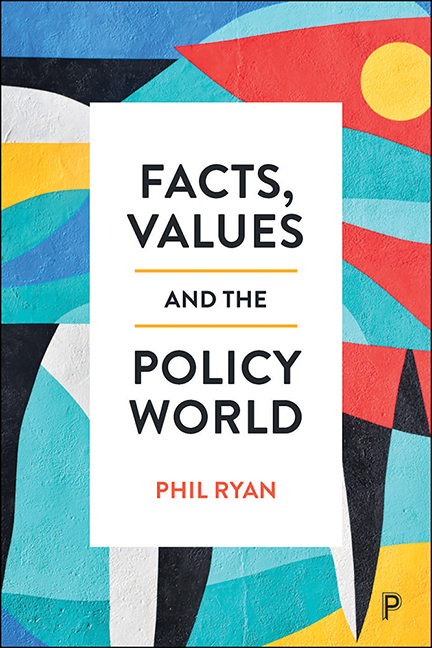4 - Convenient belief
Published online by Cambridge University Press: 15 September 2022
Summary
Within the policy world, some people face strong incentives to embrace the binary view, whether or not their belief in it runs particularly deep. Douglas Amy's ‘Why policy analysis and ethics are incompatible’ (1984) presents an important inventory of the motives for keeping policy analysis free of serious normative reflection. Though the article is three decades old, Amy's argument remains relevant today.
Amy notes that critical ethical reflection can threaten the ‘analyst-client relationship’: ‘Most analysts work for clients who have a strong commitment to a set of goals or programs and who would not be pleased by a report that raised questions about the basic desirability or worth of those programs’ (1984, 580). Closely related to this is the threat that ethical reflection might present to the profession of policy analysis itself. The legitimacy of that profession currently resides upon an image of analysts as ‘purely technical advisors whose work is value free and apolitical’ (1984, 581). Two factors are at work here. One concerns democratic norms: the policy role of these unelected experts ‘was politically acceptable because they were never involved in setting policy goals’ (1984, 581). The other factor concerns the personal interests of people trained in a particular way. Consider the plight of a young analyst. He has been trained in techniques. He has not been trained in thinking about messy things, such as competing values, social norms and so on. In fact, he probably believes that all these other matters concern ‘value judgements’, questions about which, he assumes, no training is possible. That is, his lived world is shaped by the binary view, even though he's never heard the term before. Naturally, he wants to demonstrate that he is worth his salary. But on the rare occasions when he opens his mouth on value questions, he reveals that he has nothing of real interest to say. Nothing of interest, in particular, to his boss, who from time to time wonders just why she hired him. And so, perhaps unconsciously, he focuses on what he knows best: number crunching. And if number crunching is better for some dimensions of a problem than for others, he focuses on those dimensions that are easier to handle.
- Type
- Chapter
- Information
- Facts, Values and the Policy World , pp. 49 - 51Publisher: Bristol University PressPrint publication year: 2022



